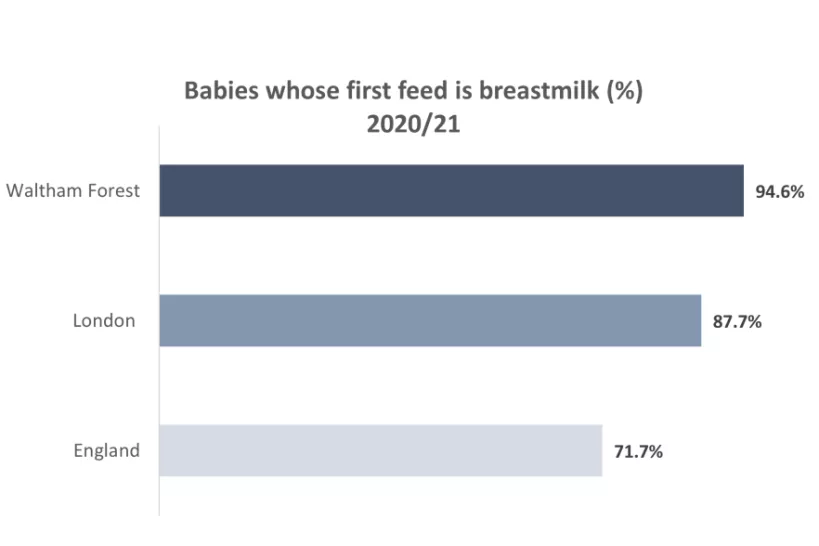Last updated: 20 June 2024
Next review: 20 June 2025
This content is part of the Waltham Forest JSNA. To see other JSNA content, visit the JSNA landing page
Breast milk provides the ideal nutrition for infants in the first stages of life. Not breastfeeding has been linked with an increased risk of childhood gastrointestinal and respiratory tract infections. There is growing evidence that not breastfeeding may increase the risk of obesity later in life.
Breastfeeding is associated with improved maternal health: lower risk of breast cancer and endometriosis, greater postpartum weight loss, and lower body mass index, BMI in the longer term.
The importance of babies receiving breast milk as their first feed is twofold. The establishment and continuation of breastfeeding begin with the first feed. The feeding of colostrum in the first hours and days of life confers a range of protective benefits to the baby.
The latest 2021 data shows that in Waltham Forest, 94.6% of newborns were given breast milk as their first feed. This is higher than the national and regional averages of 72% and 88%, respectively. Due to changes in reporting, it has not been possible to assess the trend in performance against this measure.

Source: OHID Public Health Outcomes Framework. Data from Maternity Services Dataset. Date accessed: 13 April 2023.
References:
WHO 2013. Short Term Effects of Breastfeeding- A Systematic Review on the Benefits of Breastfeeding on Diarrhoea and Pneumonia Mortality. Data accessed 08 June 2023